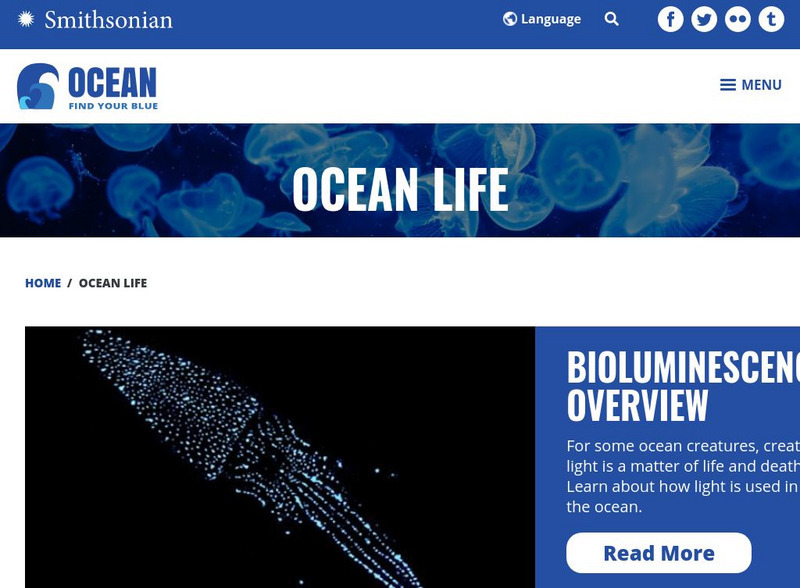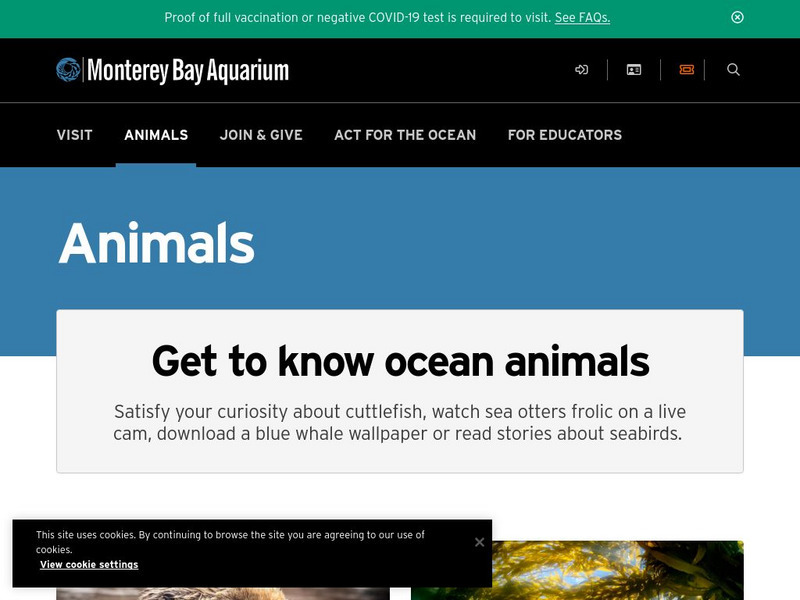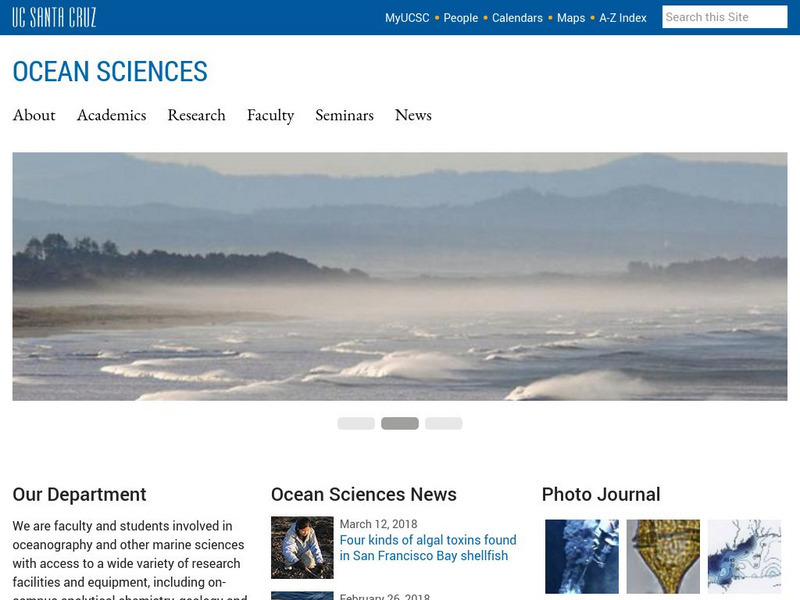American Museum of Natural History
What is Marine Biology?
A marine environment covers the majority of the earth but is arguably the least understood. Teach young scientists about the characteristics of oceans and ocean species using an interactive online lesson. The in-person or remote learning...
American Museum of Natural History
They Glow!
Let there be light! An interactive online lesson describes the process of bioluminescence and how ocean species use it to their advantage. The lesson highlights several specific species as well as provides vocabulary support with...
American Museum of Natural History
They Glow!
Would you believe marine animals can make their own light? An online resource describes the process of bioluminescence and how animals in the ocean use it to survive. The lesson features a catchy tune that describes the behavior of ocean...
American Museum of Natural History
Climate Change
It actually is possible to have too much of a good thing when it comes to climate change. A slide show lesson describes how burning fossil fuels contributes to climate change. Individuals read about the scientific process and the...
Smithsonian Institution
National Museum of Natural History: Ocean Portal: Ocean Life & Ecosystems
From the tiny to the titanic, from the familiar to the undiscovered, the ocean offers a stunning diversity of marine life and nearly every kind of habitat imaginable. Dive in and explore them here. Links incude stories, videos and photos...
American Museum of Natural History
American Museum of Natural History: Milstein Hall of Ocean Life
Tour the museum's famed exhibition hall dedicated to ocean life at this online recreation. Find videos, maps, species specimens, and images that let you experience many of the museum's resources on ocean life right from your desktop.
NOAA
Noaa: Ship Okeanos Explorer: "America's Ship for Ocean Exploration"
Follow teams of scientists as they explore marine life and habitats of the deep ocean. Covers past and current expeditions in various regions of the world. Includes webcasts, videos, lesson plans and modules, and career resources. An...
NOAA
Noaa: Living Ocean Gallery Invertebrates
Many still photographs and video clips of marine invertebrates are available in this huge collection.
Smithsonian Institution
National Museum of Natural History: Ocean Planet
Detailed website that was a companion to a 1995 traveling exhibit of the Smithsonian. Links to lesson plans and other educational materials are at the bottom of the page. Enter the exhibition to explore the world of the ocean.
Smithsonian Institution
National Museum of Natural History: Ocean Portal, You Navigate
Delight in the fresh colors, sights, and sounds on this dynamic site on the ocean. Major categories consist of Ocean Life & Ecosystems, The Ocean Over Time, Ocean Science, and The Ocean and You. New information on sharks, a slideshow...
NOAA
Noaa: Ocean Facts on Marine Fish Habitats
The depletion of marine fish habitats from NOAA affects more than just the fish - it can affect you too! Learn facts about the importance of habitat preservation for science, and for people like you.
Woods Hole Oceanographic Institution
Woods Hole Oceanographic Institute: Undergraduate Resources: Marine Careers
What does an oceanographer do and study? This site looks at what marine scientists and students do and the research expeditions they take part in.
Monterey Bay Aquarium
Monterey Bay Aquarium: Animal Guide
An extensive image-rich field guide to marine habitats and inhabitants, with detailed descriptions and "cool facts" about each.
PBS
Pbs: Secrets of the Ocean Realm
At this site students can read about sea creatures and ocean plant life, and see pictures of each.
Boise State University
Boise State University: Ocean Exploration: Abyssopelagic (Abyssal) Zone
Learn about the very cold, dark region of the ocean known as the abyss. Includes information on the origin of the name of this ocean zone, as well as information on its depth and animal life.
Other
Ocean Oasis: Field Guide
Ocean Oasis is a giant-screen film that depicts Mexico's Sea of Cortes and the Baja California desert. This companion site features much of the information the film has, such as beautiful images of animals, water, and land that have...
NOAA
Noaa: Pacific Marine Environmental Laboratory: What Is El Nino?
This page tells you what El Nino is, provides links to animations and videos on El Nino, explains how to recognize El Nino, and discusses the history of significant El Nino events.
Ducksters
Ducksters: Science for Kids: Marine or Ocean Biome
Kids learn about the marine biome. The largest biome by far, the oceans cover most of the Earth's surface.
Smithsonian Institution
National Museum of Natural History: Ocean Portal: Corals and Coral Reefs
Learn about corals and the importance of coral reefs to ocean ecosystems. Find out how reefs are created, what threats they face, and what kinds of conservation tactics are being used to protect and preserve them.
NASA
Nasa: Sea Wi Fs Project: Teachers Resources
SeaWIFS refers to the Sea-viewing Wide Field-of-view Sensor, which is a satellite sensor that can monitor the color of the oceans and send data back to Earth. This page has a collection of scientific and educational resources on ocean...
Other
New Bedford Whaling Museum: William Bradford: Sailing Ships and Arctic Seas
Online exhibit of the life and work of nineteenth-century American marine artist William Bradford, whose lifelong interest in the sea led him north from New Bedford to Labrador and to the Arctic Ocean. See examples of Bradford's...
Woods Hole Oceanographic Institution
Woods Hole Oceanographic Institution
A non-profit center for applied ocean and physics engineering, biology and marine chemistry and geochemistry with a focus on physical oceanography.
American Academy of Achievement
Academy of Achievement: Robert D. Ballard, ph.d.
Biography of Robert Ballard, a trained marine geologist who is famous for discovering the Titanic as well as his work in oceanic research. Today, he is resident of the Institute for Exploration in Mystic, Connecticut; Scientist Emeritus...
Other
Institute of Geophysics and Planetary Physics
Studies involving earth sciences, marine sciences and oceanography.
















